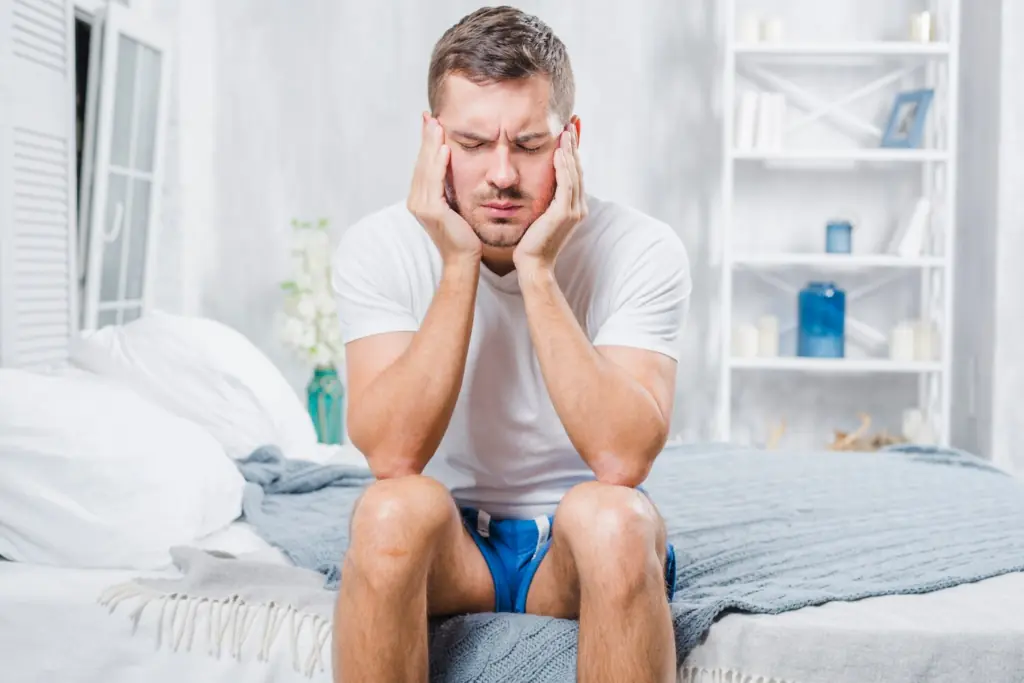It’s normal to be concerned about your health every once in a while. But for others, those thoughts can become a spiral of ongoing fear and misery, even when there is no actual medical problem. It’s called health anxiety, and it can seriously interfere with your day-to-day.
Health anxiety — sometimes called hypochondria — can cause obsessive self-checking, frequent doctor visits and a nagging distress that something is wrong with your body. With a clean bill of health, that recurring worry is alive and well.
In this article, we’re breaking down what health anxiety is, why and how it manifests in our minds and bodies, and ways to meaningfully address it.
What Is Health Anxiety?
Health anxiety is an anxiety disorder that is characterized by excessive worry about having a serious illness. It is more than just regular worry, and the worry (over the broken heart, like in our example) leads to scary thoughts (I might die, I can’t breathe), physical symptoms (I’m sweating and shaking), and escape or avoidance behaviors that prevent living life.
Some of the most frequent symptoms of health anxiety are:
- Frequent examination of the body for evidence of disease
- Repeatedly searching symptoms online
- Staying away from doctors, or, on the other hand, seeking out several of them to be soothed
- Believing common physical sensations (e.g., heart rate, headache) to be evidence of a catastrophic illness
- difficulty thinking of anything other than the fear of illness.
- It’s important to know: health anxiety is real and it is treatable. You are not alone.
What Causes Health Anxiety?
There are a few different things that can lead to health anxiety:
- Other health experiences: A serious illness (either yours or that of someone you care about) can set off long-lasting worry.
- Family history: If you have it in your family, you stand a greater chance of having it yourself.
- Information overload: When people are constantly bombarded with health news and information about symptoms on the internet, it can exacerbate fears.
- Perfectionism: A deep need of feeling “in control” can lead the idea of uncertainty about health as unbearable.
“Ultimately, health anxiety is triggered by a fear of not knowing or losing control of the body,” Korgaonkar explained.
The Physical Effects of Fear of Illness
Ironically, the health anxiety itself can be a source of real physical symptoms:
- Headaches
- Nausea
- Muscle tension
- Fatigue
- Heart palpitations
This can become a vicious cycle: You are physically uncomfortable (OMG, you feel pain), wonder if it’s something serious and the anxiety makes the same or similar symptoms worse.
How to Manage Health Anxiety
And the good news is, health anxiety can be controlled with the appropriate coping mechanisms. Here’s how to take control:
Challenge Your Thoughts
Ask yourself:
- What is the evidence for this concern, and what’s the evidence against it?
- Have I ever experienced this symptom with no serious cause?
- Am I jumping to conclusions?
Cognitive restructuring can help interrupt the cycle of catastrophic thinking.
Limit Reassurance-Seeking
It can be tempting to ask your friends or Dr. Google if what you’re experiencing is normal. But that reassurance is only a temporary fix — and it often feeds anxiety in the long run.
Limit how often you are asking for reassurance. Instead of heading straight to Google, consider journaling your symptoms.
Practice Mindfulness and Relaxation
Deep breathing, guided meditation and mindfulness activities help anchor you in the present and reduce the physical effects of anxiety.
Begin with as little as 5–10 minutes a day and work your way up.
Stay Engaged with Life
Don’t let health concerns swallow up your time and energy. Remain active in hobbies, social activities and work. Distraction can also interrupt obsessive thought patterns.
Develop a daily routine that incorporates things that you enjoy and a few small goals to help keep you focused and centered.
Seek Professional Help
If your health anxiety is getting in the way of your life, it’s time to seek professional help.
A speedy google search for therapist near me and your access to a mental health provider who is well versed in treating health anxiety. Cognitive Behavioral Therapy (CBT), is particularly useful in teaching people how to identify and dispute the thoughts.
You may also search for anxiety treatment near me in order to learn more about specialized programs or providers who can offer an individualized approach, such as a combination of therapy and medication (or only medication) specific to your needs.
Final Thoughts
Health anxiety might leave you feeling trapped in fear, but you have hope. With the right attitude, resources, and tools, you can learn to take back the reigns of control from your thoughts and feelings. Remember, worry about your health is human — but you don’t have to let that worry run your life.
Start small. Build healthy habits. And if necessary, reach out to a trusted therapist near me or consider resources for professional anxiety treatment near me so you can get back to fully living, and living confidently.



